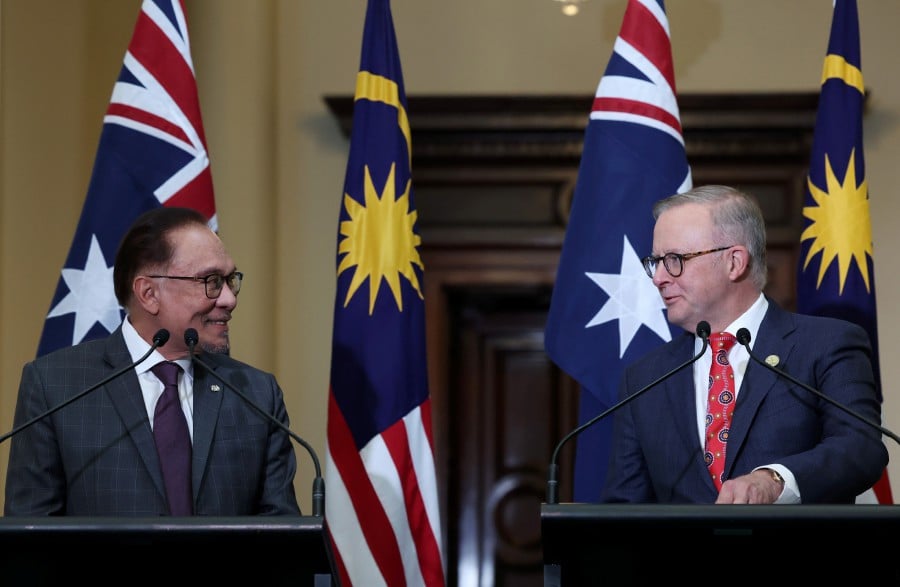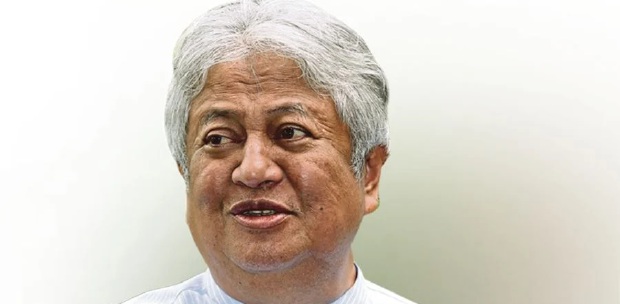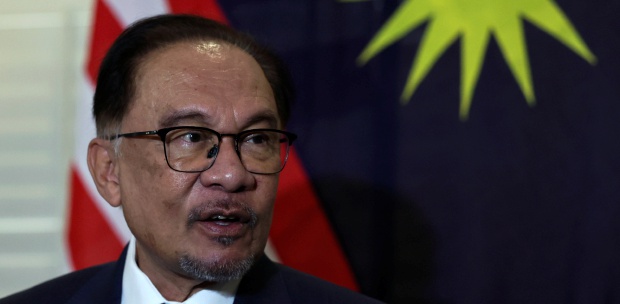AUSTRALIA was the centre of focus on regional geopolitics last week when it hosted the Asean-Australia Special Summit, marking 50 years of formal ties. For Malaysia, there was frenzied focus on the various engagements of Datuk Seri Anwar Ibrahim, making his first official visit to Australia as prime minister.
As one of the region's more seasoned statesmen, arguably the most articulate, and one never short of chutzpah, Anwar's utterances generated more than mere chatter, taking the lion's share of media headlines.
Anwar's aura, even during his years as opposition leader, had never failed to eclipse his peers in terms of striking an impression. He has a way with words and I would contend that neither Ferdinand "Bongbong" Marcos nor Lee Hsien Loong, not even Prabowo Subianto, could hold a candle to Anwar.
Unsurprisingly, it's his penchant for off-the-cuff remarks that tends to take the cake.
And for this summit, it was a ginormous one at that where those remarks centred on China vis-à-vis the United States. Once fired, it took on a life of its own making it open season for the media to churn, seize on and spin ad nauseum.
What's there not to be triggered with pronouncements such as "others may have a problem with China but for Malaysia, we don't" and "don't foist your problems with China on us," or "what's with this China phobia?" There was, of course, the refrain that while we may be a small nation, we are decidedly, "fiercely independent".
And then there was the much-vaunted Gareth Evans Oration at the Australian National University (ANU) where Anwar did not miss a cue when confronted with loaded questions about Hamas, October 7 and Gaza.
He doubled down on his condemnation of the sanctimony and double standards of the West in their deafening silence on the "relentless bloodletting inflicted on the innocent men, women and children of Gaza."
Now that the dust has started to settle, several key takeaways could be discerned.
For one, Malaysia's consistency on non-alignment was on full display. Foreign policy choices must be dictated from within its interests and values, taking into account the imperative of Asean centrality but non-interference is not to be read as a mandate for indifference. Binary choices offered, be it to Malaysia or other Asean states, whether by design or default, is no choice at all.
In this vein, Malaysia need not be apologetic about its staunch position on the plight of the Palestinians, be it against the illegal occupation of their homeland or against the grave injustices perpetrated in Gaza.
Malaysia has no truck with the jaundiced view by segments of the Western policy and media elite, on current events. Indeed, Anwar's strident articulation of the inconsistencies and hypocrisy of Western powers received some of the loudest applause from the ANU audience.
This put paid to the frivolous claim that Malaysia speaks with two voices on the conflict, one at home, and another abroad. These misguided notions should be given a decent burial.
Second, this is a clear recognition that Malaysia needs to carve out, surely but carefully, a nuanced strategic position for itself, especially pertinent in a region that is rife with geopolitical strife, with no light in sight yet at the end of the tunnel.

That the principal competing actors are China and the US, two of Malaysia's biggest and most consequential economic, diplomatic and security partners, only add to our gravity. The modus vivendi that Malaysia has enjoyed for the better part of the last three decades is approaching its sunset. Challenges henceforth, though not insurmountable, will be much more daunting.
While Malaysia's preferred method of managing such intricacies has largely focused on low-profile albeit effective measures, sometimes a more vociferous, public, even more combative stance – as demonstrated by Anwar himself – is required, especially when facing an incredulous Western press bent on stoking conflict and division for the sake of catchy headlines or for nefarious reasons.
Third, despite the less than favourable spin, the Malaysia-Australia bilateral relationship, which will mark its 70th anniversary next year, is on firm and fertile grounds and only set to grow.
Australia was the second country after China which Malaysia framed its relationship with as a Comprehensive Strategic Partnership. Diplomatic speak aside, this was an understated decision on who and how Malaysia prioritised its bilateral and regional partnerships.
Going beyond traditional economic, diplomatic, security and cultural spheres, it indicates shared regional aspirations and the intent to pursue them at various levels. Significantly, it formalises the leaders and ministerial consultations which will give these efforts the much-needed heft, building on longstanding mechanisms.
In a world held ransom to geopolitical and geoeconomic flux, where deep-rooted regional architectures are being reshaped, where populism, nationalism, raw transactionalism and even blatant double standards increasingly define the established democracies of the Global North, it is imperative that Malaysia doubles down on its non-alignment stance and principles, while retaining a degree of flexibility in its strategic options.
This was successfully done in Australia, sensationalist headlines aside. How Malaysia continues to articulate its narrative and fix its place in a contested and dynamic Asia-Pacific will remain a priority for the prime minister and the foreign policy establishment.
The writer is chairman of Institute of Strategic & International Studies (ISIS) MalaysiaAnwar Ibrahim China-US remarks show our neutrality





